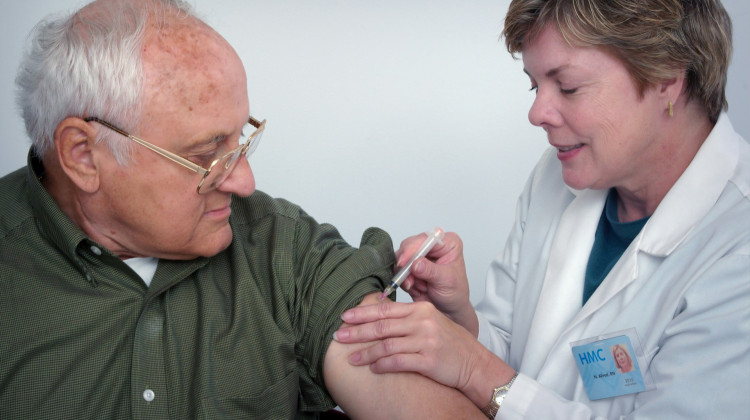
The Indiana University School of Medicine's Alzheimer's Disease Center.
Indiana University School of Medicine/YoutubeThe study led by the Indiana Universty School of Medicine seeks to discover a better understanding of early-onset Alzheimer’s which could in turn, promote greater understanding of the overall disease.
People who get Alzheimer’s before 65 represent only about five percent of the population living with the disease. These people have been underrepresented in studies but IU School of Medicine professor Liana Apostolova say their predisposition can be telling.
“Is it environment? Is it genes? Is it both?” Apostolva asks, “Once we get to study these people and really map out their background we might be able to affect new genetic variants for this awful disorder.”
The National Institute on Aging gave IU School of Medicine more than $7 million to establish a network of sites to conduct clinical trials that focus on aspects of the disease like bio-marker changes and progression.
Apostolova says the ability to study younger people wit Alzheimer’s disease may help reveal new treatments.
“We’ve seen so many failed therapeutic strategies in late onset, and why is that?” Apostolova says. “Is that because we are going in and treating too late? Or is it because these people have so many other comorbidities that affect brain health that is it really hard to see medication effect.”
Alzheimer’s Association Greater Indiana chapter’s Denise Saxman says enrolling people in these trials is key.
“This study will give us some information about what the true numbers are and what that looks like and how it all fits into the big picture of Alzheimer’s in general,” says Saxman.
People who have early-onset Alzheimer’s often suffer greatly.
“These are people who have tremendous psycho-social needs because often times when they are diagnosed they may still be fully employed and the primary bread winner for a family,” says Saxman.
This will be the first multi-site study to examine early onset Alzheimer’s.
 DONATE
DONATE








 Support WFYI. We can't do it without you.
Support WFYI. We can't do it without you.